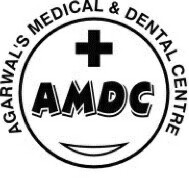
This is your website preview.
Currently it only shows your basic business info. Start adding relevant business details such as description, images and products or services to gain your customers attention by using Boost 360 android app / iOS App / web portal.
kidney and gall bladder stones
Kidney stones and gallstones are two different types of stones that can form in the body, affecting the kidneys and the gallbladder, respectively. Kidney Stones: Formation: Kidney stones are formed when certain substances, such as calcium, oxalate, and phosphate, become highly concentrated in the urine and crystallize. Symptoms: Symptoms of kidney stones may include severe pain in the back or side, blood in the urine, frequent urination, and pain during urination. Risk Factors: Risk factors for kidney stones include dehydration, a diet high in certain substances (such as oxalate and salt), family history, obesity, certain medical conditions (like gout), and certain medications. Diagnosis: Diagnosis is often confirmed through imaging tests, such as CT scans or ultrasounds. Treatment: Small stones may pass on their own through increased fluid intake and pain management. Larger stones may require medical intervention, including medications to relax the ureter muscles, shock wave lithotripsy, or surgical removal. Prevention: Prevention strategies may involve dietary changes, increased fluid intake, and addressing underlying medical conditions. Gallstones: Formation: Gallstones are formed when there is an imbalance in the substances that make up bile, leading to the formation of solid particles. Symptoms: Gallstones may cause symptoms such as abdominal pain (especially after eating), nausea, vomiting, bloating, and jaundice (yellowing of the skin and eyes). Risk Factors: Risk factors for gallstones include obesity, rapid weight loss, pregnancy, a diet high in fat and cholesterol, certain medical conditions (such as diabetes), and a family history of gallstones. Diagnosis: Diagnosis is often confirmed through imaging tests, such as ultrasound or a CT scan. Treatment: Gallstones that do not cause symptoms may not require treatment. If symptoms are present or if complications arise, treatment may involve medications to dissolve stones, shock wave therapy, or surgical removal of the gallbladder (cholecystectomy). Prevention: Prevention strategies for gallstones include maintaining a healthy weight, eating a balanced diet, and avoiding rapid weight loss. Key Points: Both kidney stones and gallstones can cause severe pain and discomfort. Dietary and lifestyle factors play a significant role in the prevention of both types of stones. Medical intervention may be necessary for larger stones or when complications arise. Consultation with a healthcare professional is essential for proper diagnosis and management.
We Provide Best Medical Service
Online appointment booking is not available right now.
Appointment Confirmed
Your appointment ID is
| Doctor Name: | |
| Date & Time: | |
| Contact: | +918048052859 |
| Address: | F-01/02, Gokul Heaven, Thakur Complex, Kandivali East, Mumbai - 400101 |
| Appointment fee: | |
| Payment mode: | |
| Join video call at: |
Thanks for choosing us.Your appointment details has been shared on your mobile number as well. Please arrive atleast 10 minutes ahead of the scheduled time.
Success
